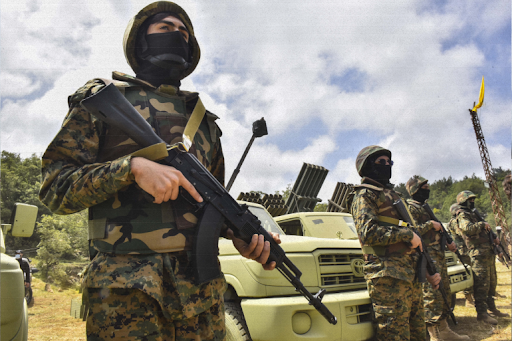Despite the consequential events happening around the world, Gaza remains the central issue driving the news for the ninth month. Even in national elections in France, UK, and Iran (and the US Nov. elections), candidates were forced to answer questions related to the war in Gaza, and in the UK, many candidates campaigned and won on a platform that put ending the suffering in Gaza on top of the list. Here are some news stories from this week.
New York Times: This is how Biden stood as a stumbling block in the fight against famine in Gaza
An American writer accused US President Joe Biden of often appearing weak in his response to the repercussions of the war in Gaza that has been going on for more than 8 months, as he kept expressing his concern about the human losses there, but did not take decisive steps to reduce them. Nicholas Kristof said in his weekly column in the New York Times that Biden often appeared weak in his handling of the war in Gaza that has been going on for more than 8 months, and was concerned about the human losses, "but did not act decisively to reduce them."
But he was unusually decisive in one case, when Israel alleged that some employees of the United Nations Relief and Works Agency for Palestine Refugees (UNRWA) were involved in terrorism, and he immediately stopped funding it, and then Congress froze it, according to the article.
Kristof added that the facts on which the accusations against UNRWA were based proved to be “misleading,” because they were intended to hold the international agency accountable, while accusing the United States of apparently compounding the suffering and misery of the hungry.
He pointed out that Israeli politicians from the extreme right are exerting pressure to abolish UNRWA, which he said establishes schools, clinics and other services for the Palestinians.
Foreign Policy: Who's in charge of the Israeli military?
The Israeli military, despite its reputation as a professional military institution that boasts of being “the most moral military institution in the world,” has shown through its war on Gaza that it has serious problems with command and control, Foreign Policy magazine said.
The magazine pointed out, in an article by Benjamin V. Allison, a historian specializing in U.S. foreign and domestic security policy, that the human costs of the occupation army’s operations were staggering.
It explained that this war led to the killing of about 38 thousand Palestinians, most of whom were women and children, and the displacement of more than a million people within 9 months of its beginning. Observers indicated that this army did not do enough to protect innocent Palestinians in Gaza.
The magazine considered that the issues of command and control in Israel are primarily responsible for the alleged war crimes, noting that Israeli violations of international humanitarian law and the law of armed conflict in war can be broadly grouped as follows: starvation, torture, mass executions, and the indiscriminate use of bombs, drones, and missiles.
The magazine pointed out that the Chief of Staff of the Israeli army, H. Halevi, publicly urged his soldiers not to film themselves committing war crimes, after Israeli forces engaged in this behavior for several months. The soldiers themselves documented these violations on social media, indicating that the Israeli army is facing major problems in maintaining discipline, especially since such behavior continued despite Halevi’s warnings.
In addition, according to the magazine, the Israeli army has been reliably accused by detainees, informants, and human rights groups of torturing Palestinian prisoners throughout the war.
The Economist warns of a terrifying war between Hezbollah and Israel
The British magazine "The Economist" warned that a war is looming between Israel and Hezbollah in Lebanon, in which attacks will be carried out by suicide drones, and its most prominent features will be power outages and the launching of a barrage of missiles.
In a report from occupied Jerusalem and Tel Aviv, it indicated that the missiles launched by Hezbollah on northern Israel led to the evacuation of villages and towns of their residents after 70,000 people were displaced. It also prompted more residents of southern Lebanon to leave.
The Economist expected the Israeli army to advance, but at a slower pace and at a much higher cost than it did in the last war, and Hezbollah is likely to “absorb the shock,” says Khalil al-Helou, a retired Lebanese general, before striking Israel’s flanks and rear using “guerrilla tactics,” including through an extensive network of tunnels built with North Korean help.
According to the magazine’s report, four major changes have occurred since 2006. One is that Hezbollah has acquired a wide range of Iranian suicide drones, while the Israeli army has many tanks and armored vehicles equipped with active protection systems that can intercept anti-tank missiles. But the drones target the weakest points on the top of the vehicles.
The second change is the development of Hezbollah’s ground forces. And the third is that the party’s experience fighting in Syria alongside the Russian air force has taught it the value of heavier explosive warheads.




































No comments:
Write comments